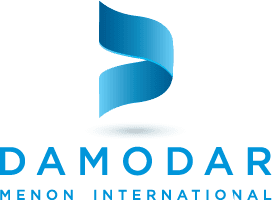Introduction
India’s textile industry has earned global acclaim for its diverse offerings and commitment to innovation. Among its many contributions, the production of viscose yarn stands out for its versatility and eco-friendly potential. Indian viscose yarn manufacturers in India are renowned for producing high-quality yarns that meet the evolving needs of industries worldwide. Alongside them, fabric manufacturers in India continue to drive the textile sector with their expertise and advanced techniques. This article explores the impact of viscose yarn manufacturers, their focus on sustainability, and why India remains a leader in the textile market.
What is Viscose Yarn?
Viscose yarn, often referred to as rayon, is a semi-synthetic fiber derived from cellulose, typically obtained from wood pulp or other plant-based sources. Known for its softness, sheen, and affordability, viscose yarn is widely used in the textile industry.
Key Properties of Viscose Yarn
- Soft and Luxurious Texture: Comparable to natural fibers like silk.
- High Absorbency: Ideal for breathable fabrics.
- Versatility: Easily blended with other fibers, such as cotton or polyester.
- Eco-Friendly Potential: When sourced responsibly, viscose yarn supports sustainable practices.
Applications of Viscose Yarn
Viscose yarn’s versatility makes it a popular choice across various industries:
1. Fashion and Apparel
- Used in creating lightweight dresses, blouses, and scarves.
- Popular in activewear and casual wear for its breathability and comfort.
2. Home Textiles
- Ideal for cushion covers, curtains, and bed linens due to its softness and vibrant dyeability.
3. Industrial Use
- Used in tire cords, filtration materials, and conveyor belts for its strength and durability.
India’s Leadership in Viscose Yarn Production
India is a significant player in the global viscose yarn market, with manufacturers leading the way in innovation, sustainability, and quality.
1. Advanced Manufacturing Techniques
Indian manufacturers use state-of-the-art technology to ensure consistency, efficiency, and superior quality in viscose yarn production.
2. Commitment to Sustainability
With the global push toward eco-friendly products, Indian manufacturers are adopting greener practices, such as using certified wood pulp and closed-loop production systems that minimize waste and emissions.
3. Export Excellence
India’s viscose yarn manufacturers cater to global markets, with major exports to Europe, the USA, and Asia, underscoring their reliability and global competitiveness.
4. Competitive Pricing
India’s efficient production processes and abundant resources enable manufacturers to offer premium-quality viscose yarn at cost-effective prices.
How Fabric Manufacturers in India Support Viscose Yarn Suppliers
The synergy between fabric manufacturers in India and viscose yarn producers enhances the country’s textile ecosystem.
1. Collaboration for Innovation
- Fabric manufacturers work closely with viscose yarn suppliers to develop advanced blends and materials that cater to niche markets.
2. Expanding Product Range
- Indian fabric manufacturers use viscose yarn to create innovative fabrics with properties like moisture-wicking, wrinkle resistance, and vibrant dyeability.
3. Sustainability Goals
- Many fabric manufacturers are aligning with sustainable practices, promoting the use of eco-friendly viscose yarn in their products.
4. Global Reach
- Through strong export networks, fabric manufacturers and yarn suppliers ensure India’s presence in international markets.
Sustainability in Viscose Yarn Manufacturing
As sustainability becomes a cornerstone of the textile industry, viscose yarn manufacturers in India are making significant strides toward greener production.
1. Use of Certified Raw Materials
- Manufacturers source cellulose from certified forests to ensure responsible raw material usage.
2. Closed-Loop Production
- Advanced production systems recycle chemicals and water, reducing environmental impact and waste.
3. Eco-Friendly Blends
- Blending viscose yarn with organic cotton or recycled polyester enhances the sustainability profile of textiles.
4. Adherence to Certifications
- Many manufacturers comply with certifications like FSC (Forest Stewardship Council) and OEKO-TEX, guaranteeing eco-friendly practices.
Challenges Faced by Viscose Yarn Manufacturers in India
Despite their strengths, manufacturers encounter several challenges:
1. Price Volatility
- Fluctuations in raw material costs, such as wood pulp, impact production expenses.
2. Competition
- Competing with manufacturers from China and Indonesia requires continuous innovation and efficiency.
3. Sustainability Compliance
- Meeting stringent international eco-friendly standards demands significant investment in green technologies.
4. Infrastructure Limitations
- Ensuring smooth logistics and timely deliveries remains a challenge for exporters.
Future Trends in Viscose Yarn Manufacturing
The viscose yarn industry is evolving rapidly, with several trends shaping its future:
1. Specialty Yarns
- Increasing demand for unique blends, such as viscose-linen or viscose-bamboo, catering to niche markets.
2. Smart Yarns
- Integration of technologies, such as antimicrobial properties and temperature regulation, into viscose yarns.
3. Recycling Initiatives
- Growth in the production of recycled viscose yarn to meet sustainability goals.
4. Digital Transformation
- Adoption of AI and IoT for better quality control, production efficiency, and supply chain management.
How to Choose the Right Viscose Yarn Manufacturer
For buyers, selecting the right manufacturer is critical for quality assurance and sustainability. Here’s what to consider:
1. Quality Standards
- Look for certifications like OEKO-TEX or GRS to ensure compliance with global quality benchmarks.
2. Customization Capabilities
- Choose manufacturers that offer customized yarns to meet specific industry requirements.
3. Sustainability Practices
- Partner with suppliers committed to eco-friendly practices and materials.
4. Pricing and Delivery
- Compare pricing structures and delivery timelines for seamless procurement.
5. Reputation and Reliability
- Research reviews and testimonials to ensure a trusted partnership.
Conclusion
Viscose yarn manufacturers in India and fabric manufacturers in India are redefining the global textile landscape with their commitment to quality, innovation, and sustainability. Their ability to adapt to changing market demands and prioritize eco-friendly practices ensures India’s leadership in the textile industry.
As the world moves toward sustainable fashion and advanced textiles, India’s viscose yarn manufacturers are poised to play an even greater role. Whether you’re sourcing yarn for fashion, home textiles, or industrial use, Indian manufacturers provide unmatched expertise and reliability, making them the preferred choice for global buyers.
If you are searching for online buying and selling Textile fabric, TEXchange Global serves as the cornerstone for exports and imports, providing a platform for textile companies in India to connect and trade across international markets.
